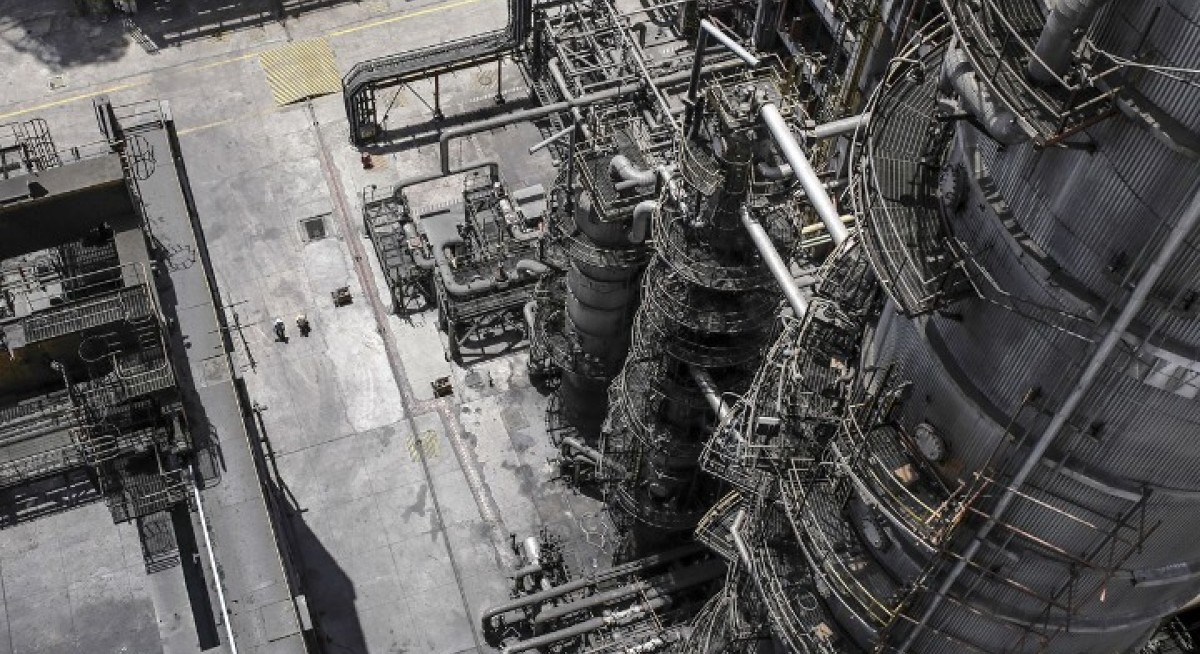While all oil consuming nations generally stand to gain from the crash, China is perhaps among the best placed. Unlike the US, which is now both the top consumer and producer, the oil industry doesn’t account for such a sizable piece of economic output, jobs and debt, all of which are threatened by the price tumble.
And weaker oil is of little use for most nations as activity grinds to a halt and transportation restrictions tighten to contain Covid-19. But in China, leaders are beginning to talk up the prospects for a rapid economic rebound as the spread of the disease appears to be under control.
“It’s a comfort to an economy that’s healing,” Li Li, a China-based analyst at commodities researcher ICIS, said of the low oil prices. “Reducing the cost of energy is beneficial to stabilizing inflation. It is not only saving money on energy and petrochemicals, but also the cost of logistics and infrastructure.”
China overtook the US in 2017 as the world’s top buyer and last year imported 10 million barrels a day, spending US$239 billion on foreign crude, more than 10% of its total import bill, according to customs data. With a price drop to about US$30 a barrel from US$55 – which it averaged last month before an alliance between Saudi Arabia and Russia unraveled, sending crude into free fall – the country is saving about US$250 million a day, according to Michal Meidan, director of China research at the Oxford Institute of Energy Studies.
“It reduces China’s import bill and in that respect can help bolster demand slightly,” she said.
China’s top economic planner, the National Development & Reform Commission, and the National Energy Administration didn’t respond to requests for comment.
Other major importers will share some of the benefits. For India and Thailand, the decline in oil prices is equivalent to a gross domestic product boost of 1% or 2%, according to Sanford C. Bernstein & Co. Oil’s fall is also expected to cut India’s import bill by about 1.5 trillion rupees, Kotak Securities Ltd. said in a March 19 report.
“The government is likely to be a large beneficiary of these gains,” it said. “Lower crude prices will help in reducing the subsidy bill while shoring up revenues through higher excise duties.”
The problem for many such countries is that measures to slow the spread of the virus are still increasing, whereas China is starting to pull out of the downturn. In India, for example, the benefit of lower oil is blunted by a nationwide lockdown. India has also used the drop in prices as an opportunity to raise consumption taxes on gasoline and diesel, further limiting the impact on consumers.
To be sure, weaker crude will still throw up some challenges for Beijing. Its domestic oil companies, led by behemoth China National Petroleum Corp., will be squeezed between old, money-losing fields and government directives to maximize output. Cheap energy also complicates the Phase One trade deal with the US, in which China agreed to buy more than US$50 billion of energy goods in 2020 and 2021. With oil prices half what they were when the deal was signed in January, that means China will have to buy twice as much.
In the US, currently the world’s biggest oil producer, low prices are a fraught issue. President Donald Trump said he still sees them as a tax break to motorists. But as prices cratered, he signaled this month he might try to mediate the Saudi-Russia spat, while more than a dozen Republican senators wrote to Saudi Arabia asking for relief in the crude market. And a Texas oil regulator floated the idea of joining with Saudis and Russians to coordinate output cuts, an effort to relieve the state’s shale producers.
For China, the benefits won’t filter into the economy the same way they would have in pre-shale boom US. China drives less than America, so the gasoline savings will be relatively smaller. And policy markers in Beijing won’t allow retail prices to reflect the full collapse of international oil. Among its command economy quirks is a US$40 price floor when calculating government-set fuel prices.
Instead the benefits will accrue to industrial users and state-owned companies that consume about half the country’s petroleum products, said Sean Darby, a Hong Kong-based global equities strategist with Jefferies Group LLC. It also adds to a rising current account surplus as the import bill shrinks, and strengthens the country’s foreign exchange reserves as oil is bought in US dollars. As well, it’s a possible boon to the nation’s strategic petroleum reserves, with top planning officials consulting this month with agencies and state-owned energy companies about bolstering stockpiles with cheap oil.
“The current decline in oil prices will provide China with a positive demand shock,” Darby said in a March 16 note, “like a tax windfall.”



